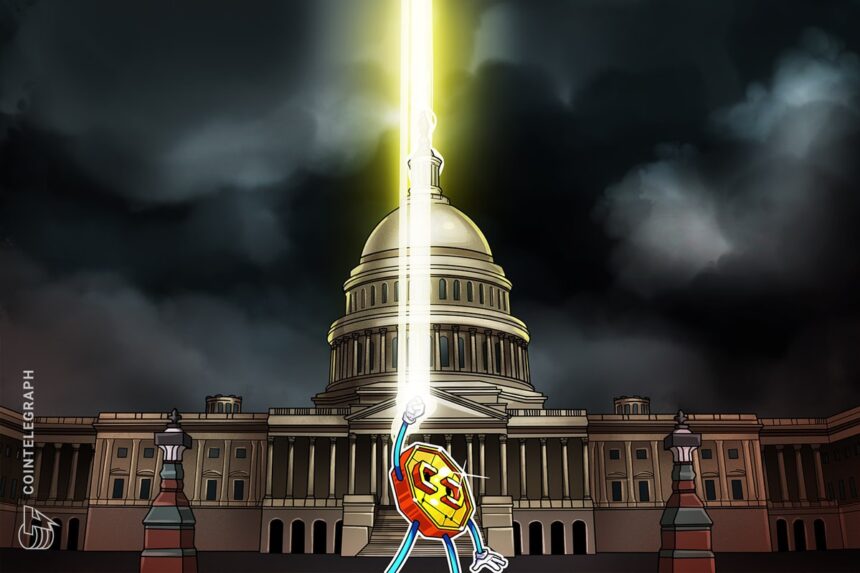Leadership on the US House Financial Services Committee (HFSC) seemed like they were not going to reach common ground on how to regulate digital assets amid President Donald Trump’s potential conflicts of interest with the industry.
In a June 4 hearing, committee ranking member Maxine Waters reiterated concerns that, without clarification within the bill, Trump could use the Digital Asset Market Clarity (CLARITY) Act to further “cash in” on crypto.
The California representative cited examples of the president hosting a dinner for his top memecoin holders, who reportedly paid roughly $148 million for the opportunity to attend, and suggested that Trump could use the market structure to “put [Americans’] money in his digital wallet.”
“This rushed, overly complicated bill will increase investor harm, which already runs rampant in today’s crypto market,” said Waters, referring to the proposed CLARITY Act.
“Some of the riskiest activities are broadly exempted from the bill, leaving our constituents with no one to turn to when their money vanishes. The bill puts our national security at risk and contains no penalties for crypto criminals.”
The CLARITY Act, introduced by Republicans with three Democratic co-sponsors on May 29, was branded as a bipartisan piece of legislation attempting to establish rules of the road for the crypto industry.
Many Democratic lawmakers have called for investigations into Trump’s connections with his family-backed crypto platform World Liberty Financial and his other digital asset investments as Congress considers legislation to regulate payment stablecoins and establish a market structure framework.
Related: Pakistan reveals Bitcoin reserve plan to Trump’s crypto team at White House
“Currently, there is no federal framework for digital assets,” said HFSC Chair French Hill at the June 4 hearing. “The SEC [Securities and Exchange Commission] and CFTC [Commodity Futures Trading Commission] do not have clear jurisdictional boundaries over digital assets, leaving investors and entrepreneurs in a state of uncertainty and often discouraging innovation.”
Save one, none of the witnesses called to testify at the hearing addressed Trump’s potential conflicts of interest in their opening statements, including former CFTC Chair Rostin Behnam, former SEC Commissioner Elad Roisman, and Uniswap Labs Chief Legal Officer Katherine Minarik. In response to questions raised by Waters, former CFTC Chair Timothy Massad said Trump’s crypto activities were a “taint” on the industry that presented national security concerns.
“We cannot tell now to what extent is the president doing something because it’s in America’s best interest or because it’s helping promote his personal enrichment,” said Massad. “I think we have to address this. I don’t see how we can move forward and try to create a framework for this industry if we don’t do that.”
In May, Waters introduced legislation to explicitly block the president, vice president, members of Congress and their families from engaging in the industry. The bill came the same day Trump hosted his memecoin dinner at his golf club. Despite claims from the White House that the event was conducted “in his personal time,” Trump spoke from a lectern with the US presidential seal.
The House Agriculture Committee had a separate hearing on June 4 to discuss a digital asset framework. Ranking member Angie Craig said Trump was making the effort to pass crypto legislation “a lot more difficult,” citing the potential to use non-public information to profit from the industry, including through his memecoins.
Crypto bills under review in the House and Senate
Both the Guiding and Establishing National Innovation for US Stablecoins, or GENIUS, Act to regulate payment stablecoins in the Senate and the market structure bill in the House could face continued pushback from Democrats and lawmakers opposed to legislation without a specific carveout to address Trump’s crypto ties. The GENIUS Act already passed a crucial vote in May, allowing it to be considered by the full chamber, while the CLARITY Act remained under consideration in the House Financial Services Committee as of May 29.
Magazine: US risks being ‘front run’ on Bitcoin reserve by other nations: Samson Mow










